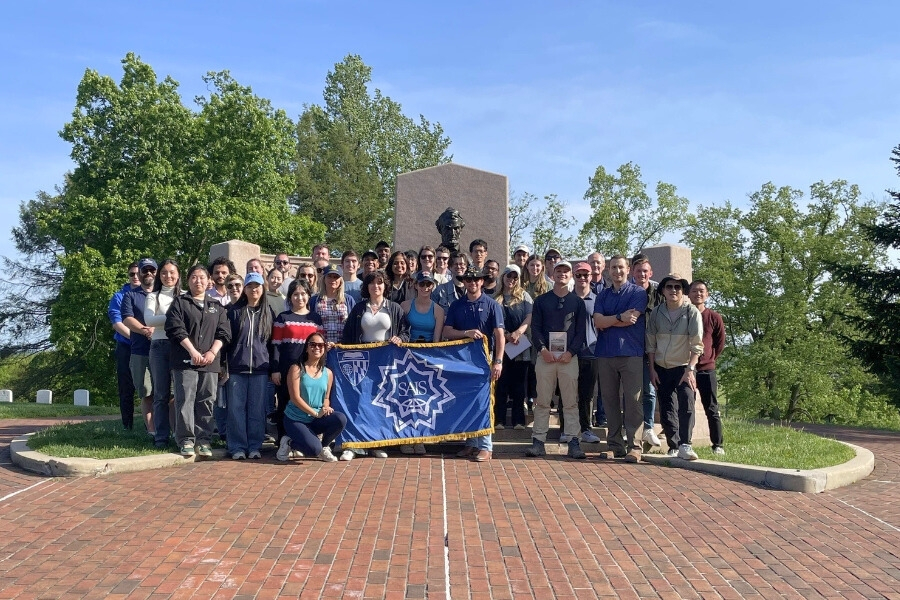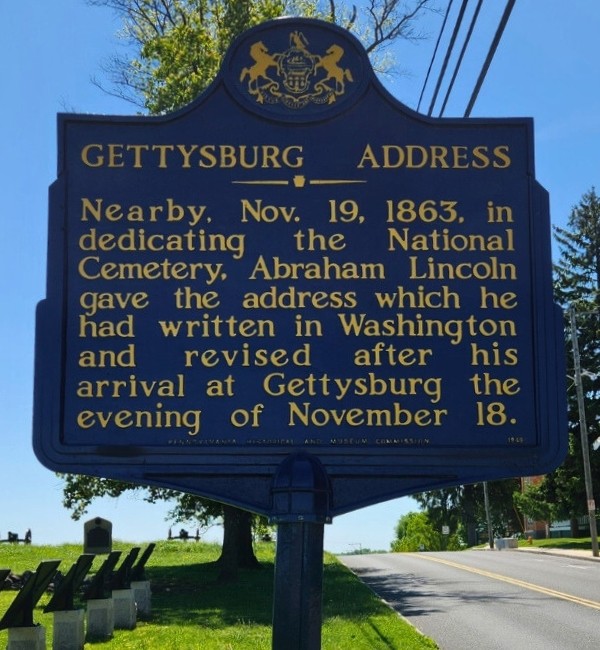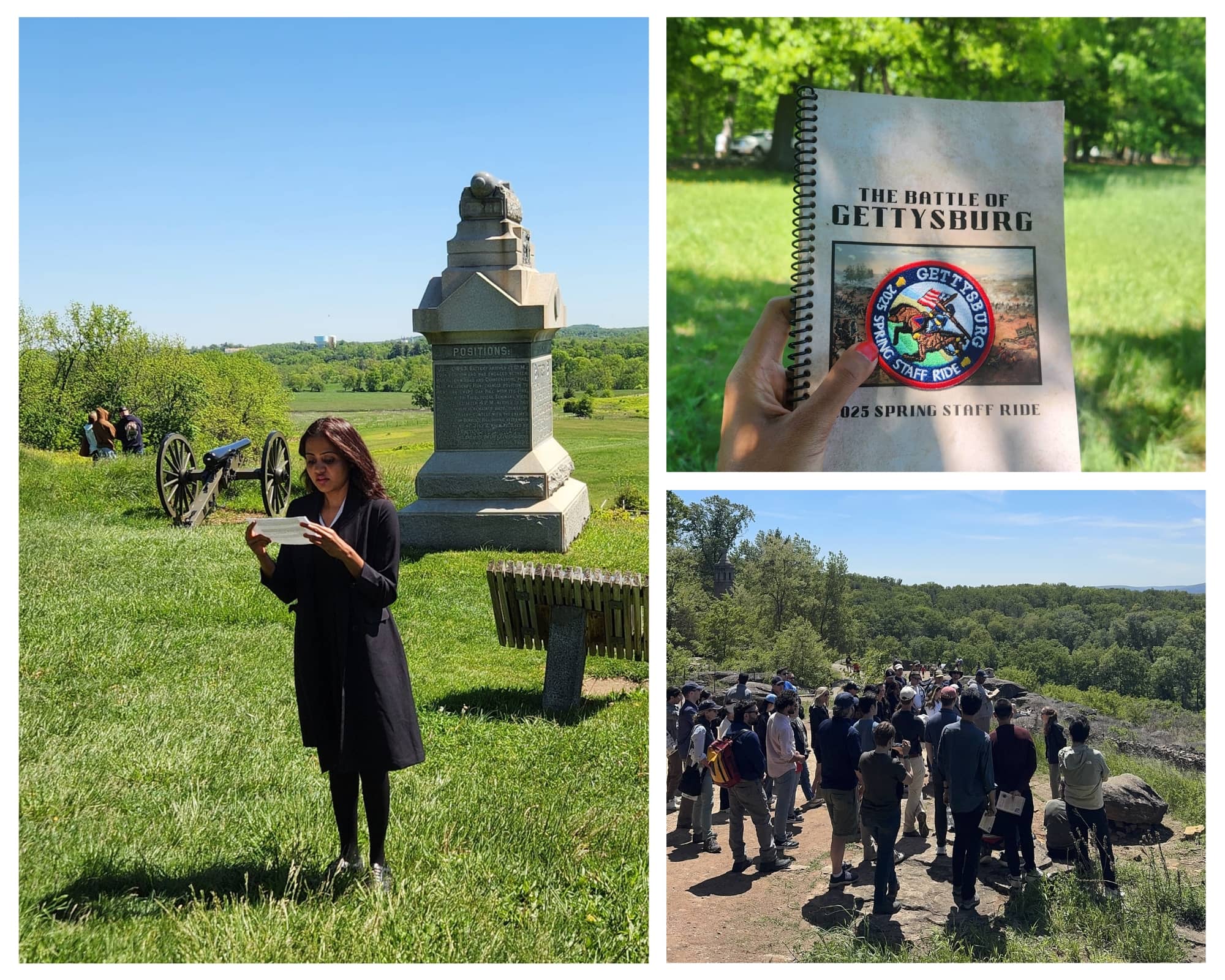From the Classroom to the Battlefield

SAIS Students Experience Gettysburg Through First-Person Narratives
Each academic year, the Philip Merrill Center for Strategic Studies at Johns Hopkins SAIS organizes domestic staff rides, which are student-led trips where participants are assigned to research and act as important figures from a significant historic event and deliver first-person presentations. The presentations are then followed by a group discussion.Recently, students had the opportunity to travel to Gettysburg National Military Park in Gettysburg, Pennsylvania, where the Battle of Gettysburg was fought in July 1863, during the American Civil War. Students in the Master of Arts in International Relations (MAIR) and the Master of Arts in Strategy, Cybersecurity, and Intelligence (MASCI) programs participated in the Gettysburg Domestic Staff Ride.
During this trip, students learned about American history, military strategy, the human cost of war and the evolution of warfare by visiting key sites of the Battle of Gettysburg, including Cemetery Hill, Little Round Top, and Pickett’s Charge. At each site, participants heard first-person narratives from students stepping into the shoes of historic figures who helped shape American history, such as President Abraham Lincoln, Confederate General Robert E. Lee, and Union General George G. Meade.
“As a MASCI student I spent much of my coursework discussing strategy and operations, but seeing those topics play out in a historical setting with character stands as analytical tools made my classes come to life.” said participant Lilly Doninger.
SAIS students Dao Tran, Nick Haberly, Yasmin Erwin, Sophia Schoolen and Veronica Marcone organized this staff ride. Dao Tran described it as a unique opportunity for students to understand American history better through experiential learning. “Before SAIS, I had done a Gettysburg staff ride with the Institute for the Study of War, and it sold me on the educational value of a staff ride,” she said. “It changed the way I looked at a battlefield. The vivid experience made the lessons of Gettysburg stick out much more prominently and for much longer in my mind. I wanted to replicate that experience on behalf of SAIS for my peers.”

Professor David Barno enacted the role of Private James Dean, a perspective of the individual soldier on the battlefield, reminding participants about the magnitude of the consequences of following commands. His performance became even more poignant after participants learned that Private James Dean was Barno’s distant relative.
Dylan Yachyshen, another student participant, noted the importance of reflecting on the Battle of Gettysburg, which is often described as the most decisive battle in the American Civil War. “The war continued for almost two years longer,” he stated. “It is necessary to explore why this is, especially why Robert E. Lee was pursuing a decisive battle because he knew the confederacy did not have the resources for a protracted war.”
At the end of the staff ride, students engaged in enriching discussions over dinner, sharing their reflections and perspectives on the Battle of Gettysburg.
“Some of our dinner reflections at the end of the day were on how certain interpretations of Gettysburg have contributed to the lost cause narrative which interprets the Civil War from the perspective of Confederates,” said Dao Tran. “For me, that discussion highlighted how important it is to study history prudently because history can be co-opted to support parochial narratives.”

Enjoyed reading From the Classroom to the Battlefield? Learn more about what Washington DC campus has to offer.
Back to Beyond the Classroom Stories